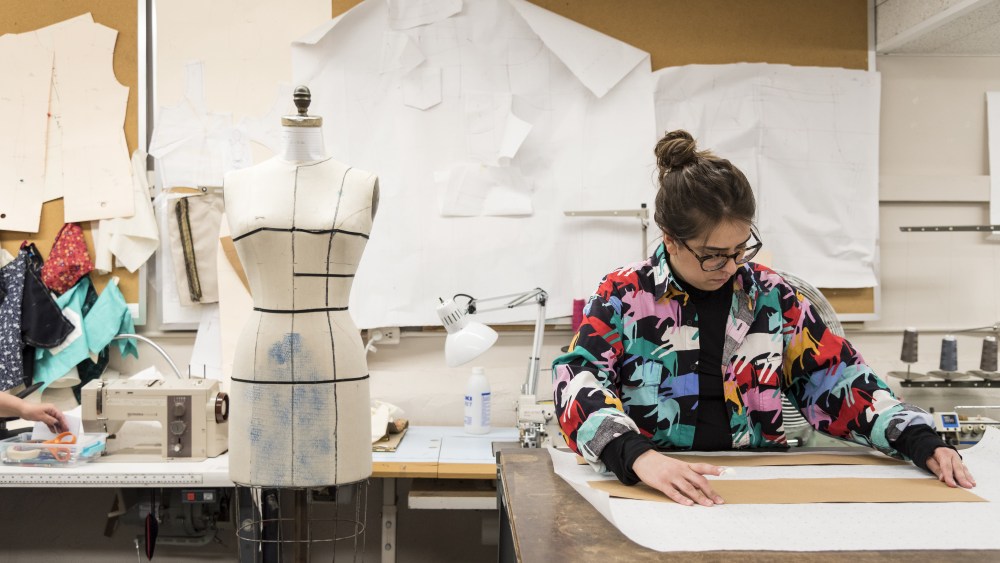[ad_1]
The School of Fashion Design, a 90-year-old institution, has tapped Jennifer Leclerc as its executive director.
Having first teamed up with the Massachusetts school in 2009 as a consultant, she said she immediately fell for the school, the staff and the creativity of the students. Impressed by the values that the school brings to the fine art of handcrafted garments and apparel, Leclerc said there is nothing else like it in the area so she “just stayed.”
Leclerc, who most recently served as associate director, said her role has evolved through the years. She officially starts in her new post next month and will succeed Jim Hannon, who is now director of operations and compliance. Change in fashion is constant, and the school recognizes those changes too. “In a post-pandemic environment, the student community and our learning expectations have changed,” Leclerc said.
Attracting a wide demographic range of students, the School of Fashion Design welcomes many young students, who are seeking an alternative to a four-year degree, as well as older adults, who are shifting careers. Committed as the school is to the artistry of handcrafted garments and apparel, the school added computerized design decades ago, and is now offering 3D design, has updated some of the ways professional development has changed, and added online classes. Looking ahead to the next 10 years, the vocational certificate program will remain the school’s core, but workshops for fashion and design enthusiasts, and home sewers, are being offered to build the community. In her hometown of Melrose, Mass., Leclerc started the Melrose Arts Alliance, a nonprofit that champions arts advocacy and outreach.

The entrance to the School of Fashion Design in Boston’s Back Bay neighborhood.
Photo Courtesy
Located in Boston’s Back Bay neighborhood throughout its 90-year history, the private nonprofit has between 50 and 55 students each semester. It had been reorganized as a nonprofit in 1955 — and renamed the Modern School of Fashion Design — in response to the changing economy and workforce demands.

Jennifer Leclerc
Photo by Kim Conant/Courtesy
Shorter than a four-year program, the 20-course certificate curriculum costs $1,335 per class. All of the school’s scholarships are privately funded by independent donors including some alumni. As the only school in New England that is dedicated exclusively to apparel design and construction, there are four levels of construction and patternmaking alone, Leclerc noted. “That deep technical expertise is what we are really known for. When our students complete this program, they know how to make anything,” she said.
With New Balance, Puma, TJX Cos., Tracksmith, Wolverine Worldwide and other brands with corporate headquarters or major Boston hubs, some alumni have stayed local to work. The city has a “remarkably robust” costume design job market for costuming for film and television — due partially to Boston’s tax incentives for the film industry, Leclerc said. Alumni fall into three camps job-wise — working for a large corporations, in costume design or in their own start-ups.
[ad_2]
Source link

